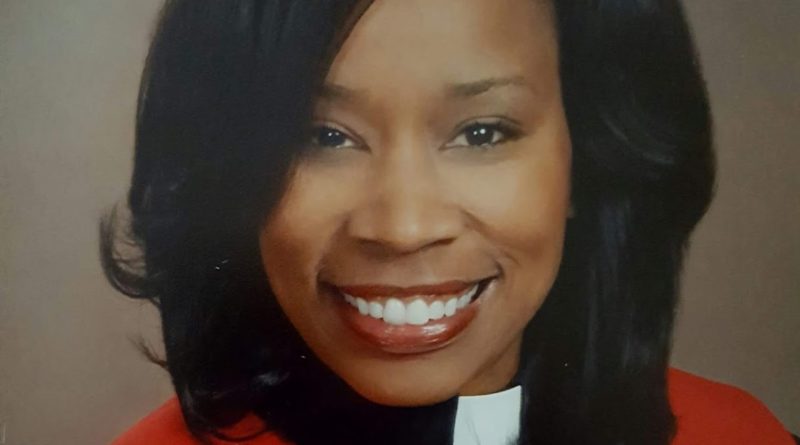Reaping What We Sow: The Economy in the City by Amantha Barbee
What about the economy in the city? How do we define the economy? Is it totally based upon finances? Some may define economy as the vigilant administration of resources. I prefer to define the economy in this manner. This definition allows us to examine self, especially during this season of Lent.
Whether we are in the city or rural America, we have an opportunity to examine self in light of our neighbors. Neighbor invites us to examine our beliefs and true understanding of who our neighbors are. We have a historic habit of speaking for and not listening to minorities. Of course, this is a painful holdover from slavery and how slavery has shaped our country. It is a debilitating habit of white America to act out of pity and guilt of the historic reality of this country rather than to simply treat black and brown people as equals.
This becomes even more of a challenge when those whom we are supposed to treat equally have had a poor education, a challenging home life which we don’t understand and to which we cannot relate, or their stories begin with a conversation about a family member being incarcerated. This is the reality for many minority families in the USA because our forefathers have not vigilantly administered resources. When an economic system requires free labor, the only way to sustain it is free labor. The only way to get free (or cheap) labor is to use prisoners or illegal immigrants. This is the economy in the city. The economy is alive and well and it continues because those who could absolutely make a change choose instead to be silent. Breaking silence would mean breaking with the establishment in some families, some churches, some cities, some political parties, and some actual selves.
1 John 3:17-18
17How does God’s love abide in anyone who has the world’s goods and sees a brother or sister in need and yet refuses help? 18Little children, let us love, not in word or speech, but in truth and action.
These are a few ways in which this perpetuated behavior has affected the economy in the city:
Predatory Lending: Example: 23% of Wells Fargo’s loans to minority customers in Philadelphia were high-cost or high-risk, compared with 7.6% of loans made to white borrowers. (http://money.cnn.com/2017/05/15/investing/philadelphia-wells-fargo-lawsuit-discriminatory-lending/index.html)
The auto industry is notorious for taking advantage of minorities. Example: (https://www.theatlantic.com/business/archive/2016/02/toyota-car-loans-restitution/459678/)
I am assisting an African American family right now by writing letters to authorities because an innocent man was arrested and falsely charged with 9 counts of sexual improprieties. He was fired from his living wage job for not showing up to work because he was in jail. After a ridiculously large amount of bail money was submitted, he was released. As a result, he was required to wear an ankle bracelet. The charges were dropped after three days. The alleged victim had a history of falsely accusing co-workers. Nobody told the accused that the charges were dropped, and he wore an ankle bracelet for 22 days for no reason. This is the economy in the city every single day. His family is now suing the system for multiple reasons. Prior to this incident he had an impeccable record. (http://www.wbtv.com/story/36856271/source-says-man-arrested-for-sexual-assault-worked-at-childrens-mental-health-center)
The economy in the city is directly affected by a willingness of the establishment to accept substandard education for black and brown people. I could write a dissertation about this but I would, instead, encourage you to engage in research of articles like this one: (http://dailysignal.com/2017/11/29/black-kids-get-trapped-failing-schools/)
We as a people will stay in a dismal economy as long as these practices are mainstream. The onus is upon the majority voice to fix what the majority voice has broken. The economy in the city is deplorable because it was designed to be. As a people of God, we understand the principle of “reaping what is sowed.” This is exactly what the United States of America and the Church are doing. We are actively reaping. Perhaps during this time of Lent we can re-think, and immediately act, planting a different seed if we expect a different harvest.
Rev. Amantha L Barbee, the 2018 recipient of the PCUSA Woman of Faith Award, is the pastor at Statesville Avenue Presbyterian Church (USA). She is gifted in worship arts. She was a Vocal Performance major at Appalachian State University and University of North Carolina-Charlotte. She is currently a doctoral student at Columbia Theological Seminary. Her love of music led her to 20 years of service as a church musician prior to seminary studies at Union Presbyterian Seminary, where she received her Masters of Divinity degree and earned the E.T. George Award for excellence in Homiletics and Worship. She believes that music is a resource for healing and uses it to bring people together. Rev. Barbee loves the traditions of the church but has a passion for blended and multicultural worship. She served as a program director in an area women’s homeless center prior to her call to SAPC. Rev. Barbee serves the General Assembly for the Presbyterian Church (USA) on the Committee for Ecumenical and Interreligious Relations. She served as the moderator for Mission, Justice and Outreach and Racism Task Force for the Presbytery of Charlotte and seeks to lead harmony and justice within the presbytery, which she fully believes will spread through the city. She is on the Board of Trustees for Montreat Conference Center and serves on the Strategy Team for NEXTChurch. Rev. Barbee is the Chairperson for the Charlotte Clergy Coalition for Justice. She is a supporter of the Women In Transition program at the YWCA, KIPP Schools and NW School of the Arts – Charlotte, NC. Rev. Barbee believes that she is a servant and you will find her door open, in the halls of the hospitals, at community functions and having conversations with the patrons of Loaves & Fishes. Rev. Barbee is a disciple.

